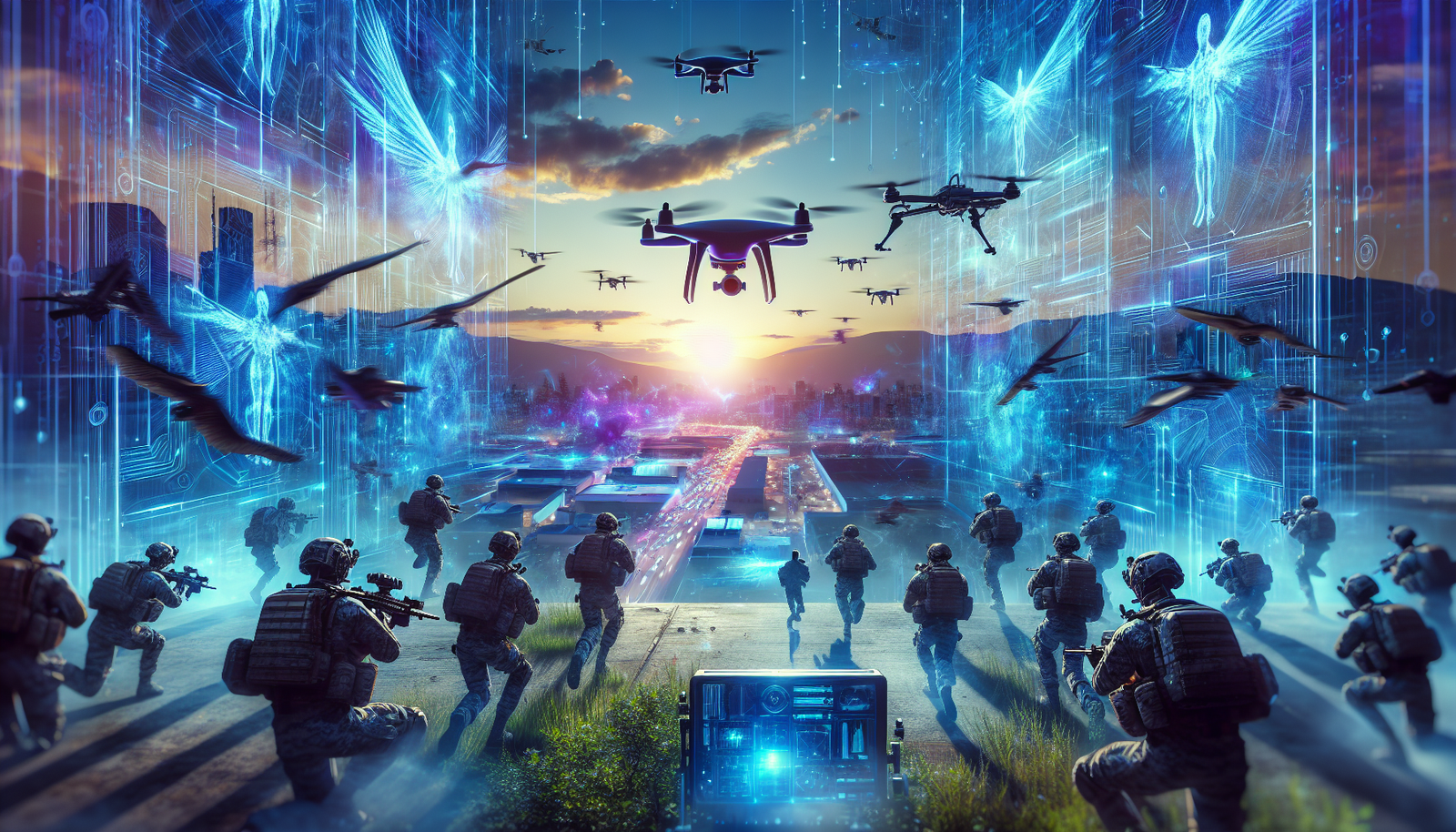The synergy between artificial intelligence and military intelligence is redefining contemporary strategic paradigms with unprecedented intensity. The emergence of this revolutionary technology raises profound questions about its applications in defense and security contexts. The phenomenon of unstable diffusion, characterized by unregulated distribution of AI capabilities, intensifies competition between nations, exacerbating geopolitical tensions.
The pursuit of technical experience on the battlefield is becoming essential. Ethical and strategic issues are emerging, calling for urgent reflection on regulating military innovations. In a world where AI transforms weapon systems, the crucial question of its mastery and control remains central.
The global military landscape is undergoing a radical transformation driven by advancements in artificial intelligence. Nations are adopting a strategic approach to integrate cutting-edge technologies into their defensive and offensive systems. Regulating the diffusion of AI, in particular, represents a major challenge in the dynamics of international security.
Artificial Intelligence as a Strategic Asset
Governments now consider AI to be a central element of their military strategy. Artificial intelligence tools optimize data analysis, allowing for rapid decisions based on accurate information. Meanwhile, military applications of AI are extending to image recognition, operational planning, and simulation of complex scenarios.
The AI systems developed by companies like Nvidia and AMD must comply with strict export standards. The goal is to restrict access to these sensitive technologies, particularly to countries identified as strategic adversaries, such as China and Russia.
A Shifting Legal Framework
The regulatory framework surrounding the diffusion of military AI is constantly evolving. The initiatives undertaken by the United States to control the export of advanced technologies aim to safeguard technological superiority. However, these restrictions lead to controversies between the tech sector and the government apparatus.
Sector actors, like Blackstone, are investing heavily in AI companies to develop innovative solutions. This demonstrates a commitment to balancing innovation and regulation. Companies and governments must navigate the challenges related to accessibility and intellectual property in this rapidly changing sector.
Consequences for International Alliances
The management of AI diffusion influences diplomatic relations. AI is becoming a power factor in negotiations between countries, especially NATO members. Allies must unite to share technologies while anticipating trends in espionage and technology diversion. Strengthened collaborations are essential in this context of growing geopolitical anxiety.
The Role of Tech Companies
Tech giants are now facing a dilemma. Rapid innovation necessitates the acceleration of AI development while adhering to ethical and security standards. Humanoid AI, for example, can intervene not only in the military sector but also in civilian life, raising questions of ethical responsibility.
Discussions are ongoing regarding how robotization missions should be framed, particularly through specific laws concerning the use of AI in conflict contexts. The need for clear regulations is critical to prevent potential abuses and excesses.
Future Perspectives for Military AI
The implications of integrating AI in the military realm represent a key research area. Studies on the socio-political and economic impact of AI systems are multiplying. In the face of this technological revolution, the balance of global power is at stake.
This deployment of AI in the defense sector requires increased vigilance regarding cybersecurity. Nations must prepare to respond to targeted cyberattacks aimed at compromising critical infrastructures. The security of AI systems will necessitate continuous investments and a comprehensive strategy to harness innovation while preserving national security.
Frequently Asked Questions about Unstable Diffusion: When Artificial Intelligence Meets Military Intelligence
What are the implications of the unstable diffusion of Artificial Intelligence in the military field?
The unstable diffusion of Artificial Intelligence (AI) in the military field can lead to unpredictable consequences, including rapid technological advancements that could disrupt power balances, as well as increased risks of uncontrolled lethal use of AI systems on the battlefield.
How do states regulate the diffusion of military AI technologies?
States implement specific regulations to control the export of military AI technologies, particularly by limiting access to certain countries deemed strategic adversaries and requiring that sensitive technologies be developed or maintained within national borders or military alliances.
What security measures can be taken to prevent unauthorized diffusion of military AI?
To prevent unauthorized diffusion of military AI, security measures include strict access controls, audits of supply chains, specific cybersecurity laws, and international collaborations to share best practices in technological security.
What role does Artificial Intelligence play in the modernization of military operations?
Artificial Intelligence plays a crucial role in the modernization of military operations, enabling real-time data analysis, more efficient command systems, automation of drones and ground vehicles, as well as advanced cyber defense capabilities.
Are there ethical risks associated with the use of AI in military operations?
Yes, the use of AI in military operations raises ethical concerns, including the risk of inhumane decisions regarding life and death, the possibility of targeting errors, and the implications of automation in military engagement.
How can governments ensure responsible use of AI in defense?
Governments can ensure responsible use of AI in defense by establishing clear legal frameworks, promoting transparency in decision-making processes involving AI, and engaging in public debate on the norms and values to be respected in the military context.
What are the main challenges related to the integration of AI into modern military strategy?
The main challenges include managing the vulnerability of AI systems to cyberattacks, developing protocols for human-machine collaboration, and the urgency of training military personnel to use and understand these new technologies.
How does international cooperation influence the diffusion of military AI?
International cooperation allows for the establishment of common standards for the use of military AI, fosters the sharing of best practices, and creates strategic alliances to counter the uncontrolled diffusion of AI technologies to hostile actors.
What is sovereign AI and how does it relate to unstable diffusion?
Sovereign AI refers to a state’s ability to develop its own AI technologies independently, thereby limiting foreign dependencies. Its relationship with unstable diffusion involves a race for technological dominance, where nations seek to secure their advancements before others exploit them.






